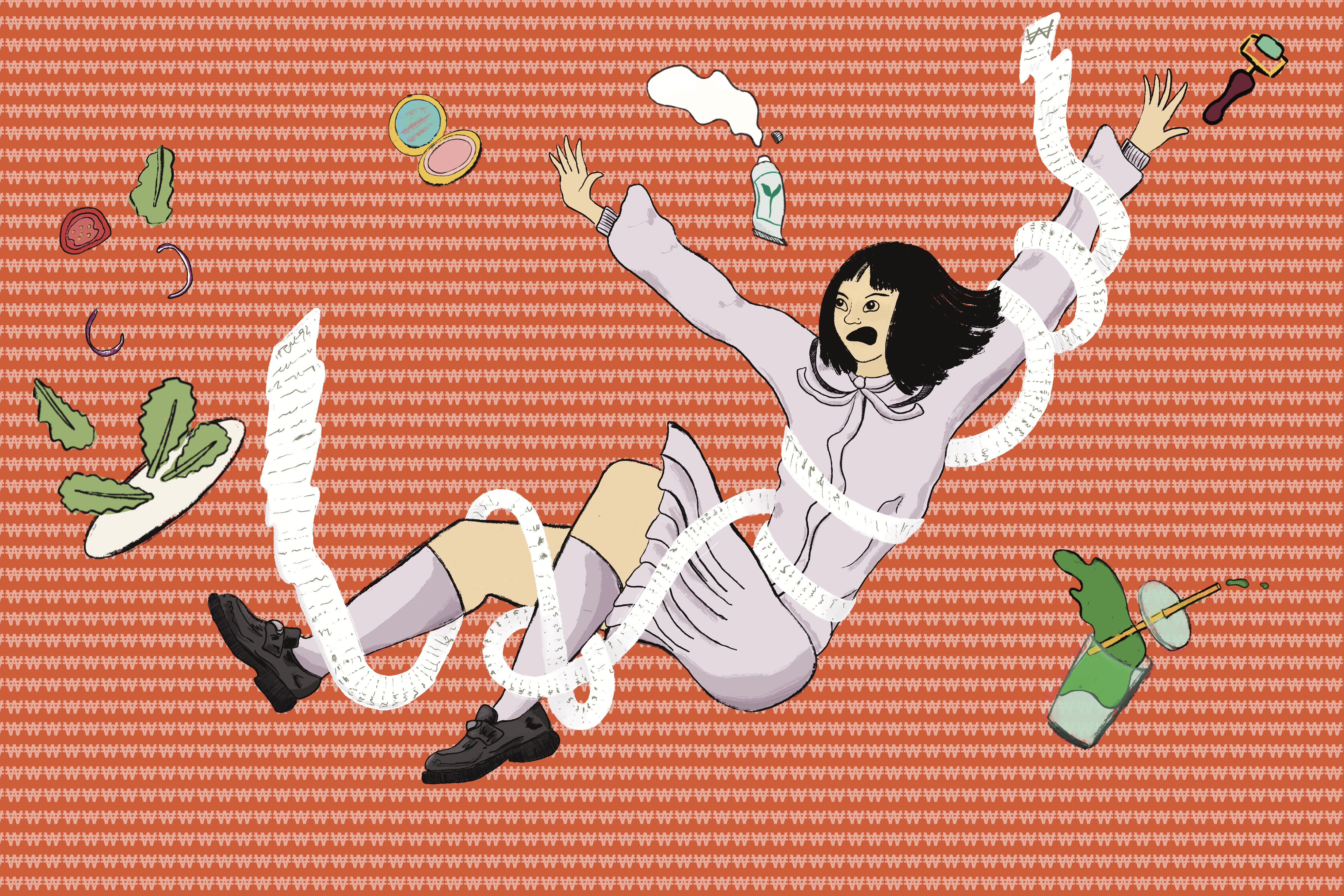Walking down the streets in South Korea can be a humbling experience, especially as a broke university student. Men and women alike are constantly put together with a full face of makeup, perfectly-styled hair and fashionable outfits adorned with designer accessories. Young adults in their 20s, displaying items from Chanel, Prada, Louis Vuitton and Dior, can really make you question what you’re doing wrong in your own life. However, is this affluence really the reality?
Many people know South Korea for its k-pop, dramas, skincare, and beauty, but underneath all of this culture is one main ideal:success. Regardless of economic or social status, Koreans are highly competitive, especially in career and education, and one way to show other people your successes is through flaunting your money. South Koreans are the biggest spenders globally on designer goods per capita, with $16.8 billion spent on personal luxury items in 2022.
Trends catch on quickly in Korea, and once there is attention on a product (or even a person), Koreans will spend a lot of time and money so they can be part of the trend and conform to the social pressure generated by it. BTS’s Jungkook is a perfect example of this. As arguably the most popular member of the biggest Korean boy-band in the world right now, he has sold out multiple products simply by using them in public or on social media. This has become known as the ‘Jungkook effect.’ Fans sell out every product used by the idol, from washing detergent and toothbrushes to necklaces and clothing items. Similar phenomena occur with other idols and actors, as fans try to emulate their favourite stars.
Recently, Korean celebrities have also become brand ambassadors for luxury companies, encouraging South Koreans to invest in their products. Blackpink member Rosé became the global ambassador for Tiffany and Co in 2021, and following this reveal, Tiffany doubled its sales on the HardWear line, a new jewellery collection which she is the face of. As part of this role, she models exclusive pieces of jewellery, which is then immediately shared with her fans and the Korean public, creating a high demand before the items are even available to purchase.
This preference for opulence would make one assume that every young Korean is raking in six-figure salaries and living a life of luxury. However, this couldn’t be further from the truth, as many young Koreans struggle to find employment and housing. Even if they’re struggling economically, Koreans will spend a large portion of their income on brand-name items, travelling, expensive restaurants and imported goods. Maintaining this perception of wealth is highly important to achieve social status within Korean society and many people are willing to spend money they don’t have on luxury items just to preserve their image.
The phenomenon extends as far as some young Koreans taking out loans in order to afford brand-names. Korean banks make it very difficult to take out large loans without sufficient collateral or proof of payment. As a result of this difficulty, many Koreans who wish to borrow money have resorted to unofficial ‘non-banks’ and unlicensed lenders who charge exorbitant interest on loans. Some “banks” will charge 39% interest or more, and if borrowers are unable to pay their debts, loan sharks have been known to threaten physical violence or even force female borrowers into prostitution in order to repay their debts.
This trend of borrowing money that can’t be paid back has contributed to South Korea’s current debt crisis. Household debt has risen drastically and is now equivalent to 100% of GDP, something not seen anywhere else in Asia. High interest rates and the rising unemployment for young Koreans also makes it likely that many of them will be unable to pay back their loans within their lifetimes. This has become a major risk factor for the Korean economy. The government has begun introducing some policies to ease the burden on young people and limit the impact of ‘non-bank’ loans. However, without individual Koreans limiting their borrowing and purchase of unnecessary goods, there is likely to be little relief from these policies.
For those who don’t wish to spend their life savings on whichever luxury good is trending that week, new companies have begun to emerge which allow people to purchase a monthly membership to rent out designer products. Many young women have opted for this service since it allows them to maintain their social status and appearance without breaking the bank.
A new startup offering these services is Reebonz Korea which charges members 79,000 won ($60USD) per month to rent from their extensive collection of luxury bags and watches, though only one item can be taken out at a time. Some items, however, will cost an extra fee. Chanel bags are especially popular in South Korea and can be rented out for 20,000 won ($15USD)per day to members, regardless of the size or style of the bag. This service generates over 20 million won in sales each month and the company declared annual sales of 30 billion won in 2016 ($22.5 million USD), a number which has only continued to grow.
Many Korean women find this service to be a good, affordable alternative to spending loads on new bags that have the potential to go out of fashion within a couple of months of purchase. Especially for special occasions such as weddings or job interviews, many people will opt for this service in order to make a good impression and secure their social standing.
While spending thousands of dollars on trending luxury items may seem unnecessary and irresponsible to some, the social currency and acceptance gained by owning them is invaluable. In a country that values appearances as much as South Korea, the need to maintain a facade of success and wealth is pervasive in every aspect of their culture. This attitude makes the merit of owning designer items even more invaluable, making it unlikely that young South Koreans will give up this trend anytime soon.

















